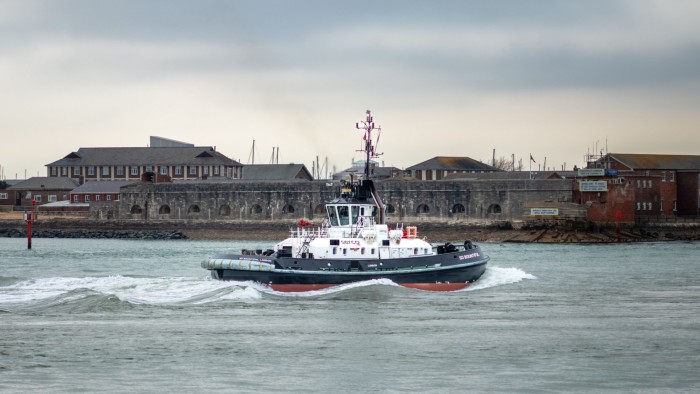Unlock the Editor’s Digest for free
Roula Khalaf, Editor of the FT, selects her favourite stories in this weekly newsletter.
Workers at military contractor Serco are set to strike over a deal being negotiated by the company and the UK’s Royal Navy, which they say could cut “essential” support for Britain’s nuclear deterrent.
Trade union Prospect said up to a quarter of Serco’s UK marine workforce will walk out for a day next month. The union wants the company to pause discussions on a 10-year contract to replace Serco’s existing £1.2bn deal with the navy that is expiring this year.
Union representatives told the Financial Times that they were concerned that the new contract could lead to cuts at Serco’s marine business, which employs about 600 people.
Under the current contract, Serco operates 91 vessels that provide services such as transporting personnel and moving larger ships to and from land, including the UK’s nuclear submarines and aircraft carriers.
The Single Source Regulations Office, which oversees the defence ministry’s relationships with suppliers, told the union last year that it wanted to save £250mn over the duration of the contract and would require up to 96 fewer Serco employees, Prospect said.
“The services covered by this contract are essential for national security and for the continuous at sea deterrent,” said Sue Ferns, senior deputy general secretary at Prospect. “Pausing now and reconsidering will avoid a costly and dangerous mistake.”
The UK’s “continuous at sea deterrent” involves a rotating fleet of nuclear-armed ballistic missile submarines, with at least one submarine at sea at any given time. The government has said this provides “a credible and effective response option to extreme aggression”.
But Prospect, which has more than 150 members in Serco’s marine business, said it was concerned that the company would struggle to provide a continuous service towing submarines and other Navy vessels if the cuts went ahead.
The union also warned that it would be difficult to get more staff at a later stage if the navy realised it did not have enough people because it can take years to train replacements. It said 87 per cent of members who participated in a ballot voted to strike.
“If it continues as planned [this] will mean the loss of vital jobs which it will not be then possible to replace when the navy inevitably realises that it has made a mistake,” Ferns said.
The navy services provided by Serco were privatised through a 15-year contract worth £1bn from 2007, with the company getting a 27-month extension worth £200mn in December 2022.
Negotiations for the new contract are being finalised as the new Labour government is enforcing spending controls to ease pressure on its finances. The ministry of defence asked major suppliers in August to identify opportunities for budget cuts.
Serco said that discussions on the new contract were “ongoing” and that “the level of service we provide on our current contract remains unchanged”. The MoD did not comment on the new contract but said operational priorities would “not be affected during the strike”.



